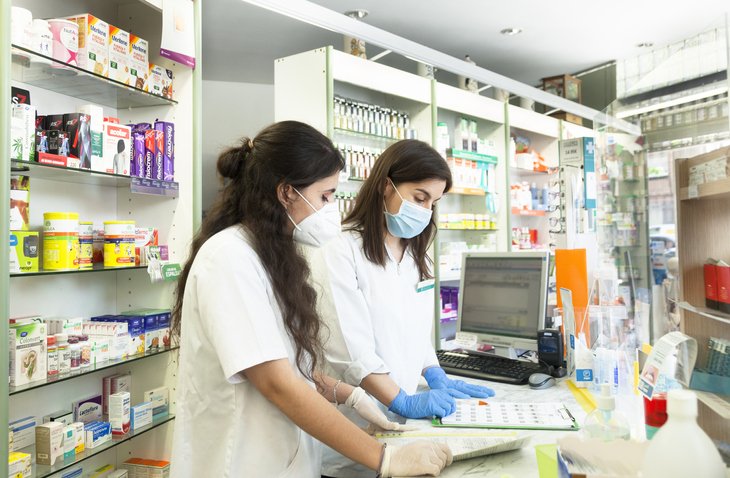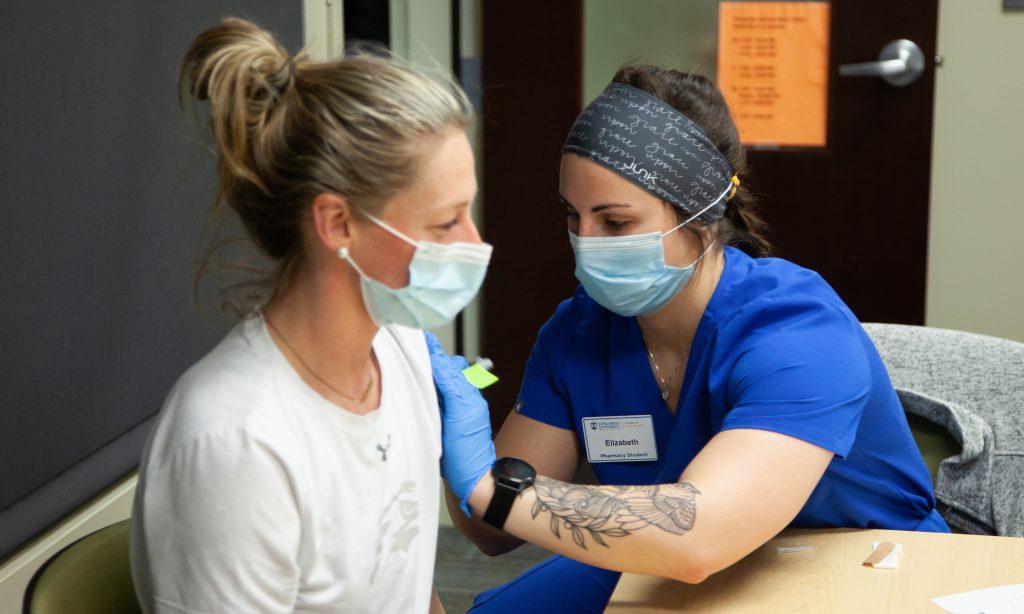
Do you know want to know how to become a pharmacist? Check out these steps.
How to become a pharmacist
Have you thought about becoming a pharmacist? Concordia University Wisconsin’s School of Pharmacy teaches pharmacists and professionals to be servant leaders. Concordia’s graduates desire to improve the health of their communities. They do this through teaching, research, service, and practice throughout their careers.

As a pharmacy student at Concordia, you’ll get a world-class clinical and scientific knowledge base. You’ll experience active applied learning throughout your degree program. Our accomplished faculty teach and mentor each individual student in a welcoming Christ-centered environment. Our highest priority is helping you develop your talents for a rewarding life, not only a career.
Did you know that more than 99% of our graduates find a job upon graduation? Concordia University Wisconsin’s School of Pharmacy prepares graduates to have an immediate impact in the field of healthcare.
But, what are the steps for becoming a pharmacist?
While everybody’s path looks different, here are some general steps that many aspiring pharmacists follow.
- High school lays a foundation of studies. Get involved with STEM extracurriculars and start exploring the field of pharmacy.
- College is next. Did you know Concordia offers a 3+4 pathway where you can obtain your bachelors and PharmD over the course of 7 years? Not only can you do this at CUW, Concordia also has partnerships with other universities for this accelerated track. In addition, students can obtain their PharmD at CUW pursuing a 2+4 pathway.
- During pharmacy school, students take courses about the human body, drug interactions, and go on rotations in the field to get experience. Once they meet all the criteria, students officially graduate as doctors of pharmacy!
- After pharmacy school, you have the option to continue on and do a PGY (post-graduate years) residency. This provides further post-graduate training for one year. Continue on to read Angie’s story about where she is at for her PGY1 residency.
Do you want to know more about what pharmacists do?
Angie Mohamed, PharmD, recently shared with us in this blog post what her journey toward becoming a pharmacist has been like.
Pharmacists can work in a variety of positions within the field. Concordia graduate Erin McGurty works in oncology, for example. If you’re curious about what pharmacy school is like, you can read our A Day in the Life series.
—
If this story has inspired you, why not explore how you can help further Concordia's mission through giving.